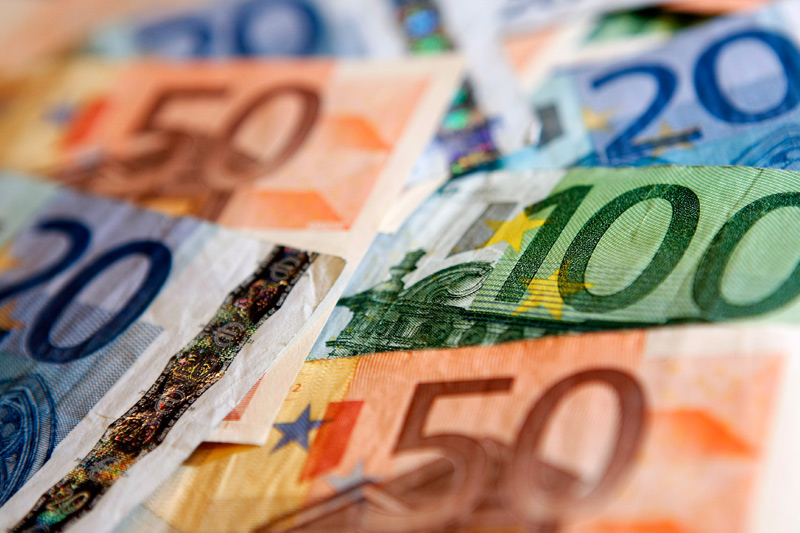Investing.com - The euro pushed higher against the other major currencies on Wednesday, as demand for the single currency was boosted by comments from Spanish Prime Minister Mariano Rajoy, while overall market sentiment improved as U.S. markets prepared to resume trading after a two-day shutdown for Hurricane Sandy.
During European late morning trade, the euro rose to a almost one-week high against the U.S. dollar, with EUR/USD climbing 0.45% to 1.3014.
Spain’s prime minister said his country needs the help of the European Union to meet its budget goals, but that EU progress on a banking union would allow leeway on making a formal request for aid.
Speaking in the Spanish Parliament, Mr. Rajoy also said that an agreement on direct bank recapitalization is getting closer and that such an agreement would improve market confidence.
The euro shrugged off official data showing that the unemployment rate in the euro zone climbed to a record 11.6% in September, from an upwardly revised 11.5% in August.
Earlier Wednesday, official data showed that German retail sales rose 1.5% in September, the fastest pace since June 2011, easily beating expectations for a 0.3% increase.
The single currency extended gains against the pound, with EUR/GBP easing up 0.15% to 0.8074.
Sentiment on sterling remained underpinned after stronger than expected retail sales data from the Confederation of British Industry on Tuesday dampened expectations for more easing by the Bank of England and fuelled hopes for a sustained economic recovery.
The euro was higher against the yen, with EUR/JPY advancing 0.71% to 103.91, but remained little changed against the Swiss franc, with EUR/CHF dipping 0.03% to 1.2077.
The shared currency gained ground against the Australian, New Zealand and Canadian dollars, with EUR/AUD up 0.17% to 1.2524, EUR/NZD rising 0.20% to trade at 1.5817 and EUR/CAD climbing 0.17% to 1.2971.
The Australian dollar found support earlier in the session after official data showed that building approvals in Australia rose by 7.8% in September, far more than the expected 1.1% increase.
Euro zone finance ministers were to hold a conference call to discuss Greece’s progress on meeting austerity targets later in the session, but no decision on when the country will receive the next tranche of its bailout was expected.
During European late morning trade, the euro rose to a almost one-week high against the U.S. dollar, with EUR/USD climbing 0.45% to 1.3014.
Spain’s prime minister said his country needs the help of the European Union to meet its budget goals, but that EU progress on a banking union would allow leeway on making a formal request for aid.
Speaking in the Spanish Parliament, Mr. Rajoy also said that an agreement on direct bank recapitalization is getting closer and that such an agreement would improve market confidence.
The euro shrugged off official data showing that the unemployment rate in the euro zone climbed to a record 11.6% in September, from an upwardly revised 11.5% in August.
Earlier Wednesday, official data showed that German retail sales rose 1.5% in September, the fastest pace since June 2011, easily beating expectations for a 0.3% increase.
The single currency extended gains against the pound, with EUR/GBP easing up 0.15% to 0.8074.
Sentiment on sterling remained underpinned after stronger than expected retail sales data from the Confederation of British Industry on Tuesday dampened expectations for more easing by the Bank of England and fuelled hopes for a sustained economic recovery.
The euro was higher against the yen, with EUR/JPY advancing 0.71% to 103.91, but remained little changed against the Swiss franc, with EUR/CHF dipping 0.03% to 1.2077.
The shared currency gained ground against the Australian, New Zealand and Canadian dollars, with EUR/AUD up 0.17% to 1.2524, EUR/NZD rising 0.20% to trade at 1.5817 and EUR/CAD climbing 0.17% to 1.2971.
The Australian dollar found support earlier in the session after official data showed that building approvals in Australia rose by 7.8% in September, far more than the expected 1.1% increase.
Euro zone finance ministers were to hold a conference call to discuss Greece’s progress on meeting austerity targets later in the session, but no decision on when the country will receive the next tranche of its bailout was expected.
